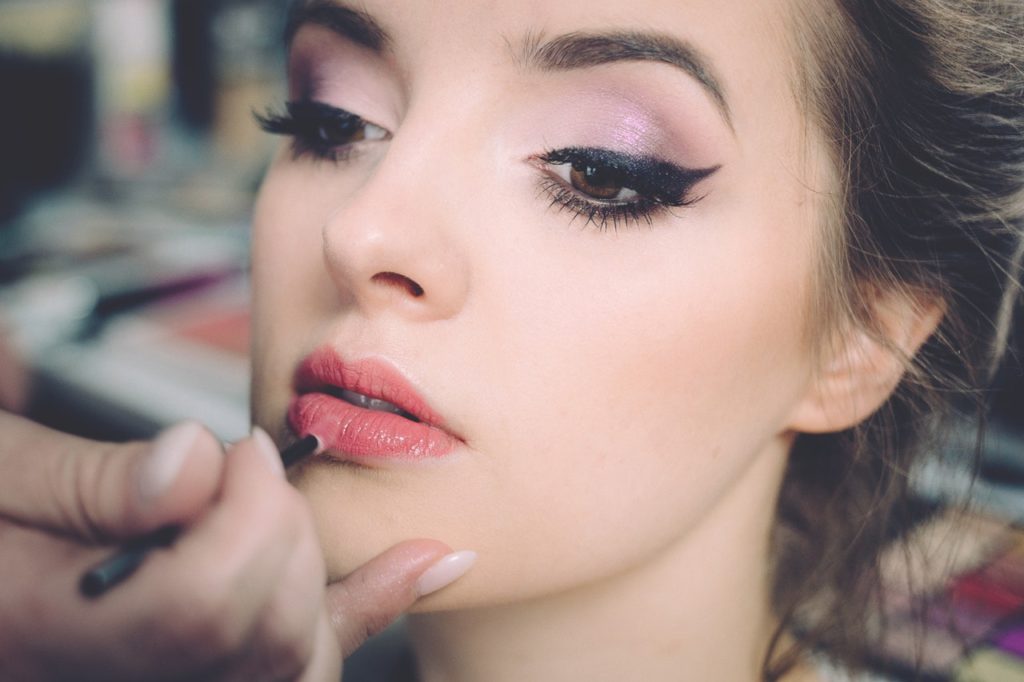Back in 2009, the Sultan of Brunei paid £15,000 for his favourite barber, who usually charges £30, to fly in luxury from London. It goes to show that a talented hairstylist can expect very loyal customers! A recent survey found that beauticians and hairdressers are some of the happiest workers in the UK. That is certainly something to consider if you’re thinking of studying Beauty Care.
Education
Dozens of further education colleges provide courses in Beauty Therapy and Hairdressing. Courses are one or two years in length and titles on offer include Beauty Therapy, Beauty & Body Therapy, Beauty & Complementary Therapies, and Hairdressing & Beauty Therapy. Certifying bodies include QQI, City & Guilds and internationally recognised bodies such as ITEC (International Therapy Examination Council) and CIBTAC (Confederation of International Beauty and Cosmetology).
Typical subjects covered on a beauty therapy course include:
- Cleansing
- Skin Analysis
- Facial Massage
- Electrotherapy
- Indian Head Massage
- Diet & Nutrition
- Depilation
Hairdressing modules include subjects such as:
- Blow-drying
- Perming
- Colouring
- Styling
- Hair & Scalp Diagnosis
Most of these courses also prepare students for professional practise with various business administration modules such as Customer Service.
Another pathway into the hairdressing profession is to start your training with a major hairdressing chain. This allows you to earn as you learn. You will experience everything from the basics – washing, shampooing and blow-drying – to the more complex skills of cutting and colouring. A full salon training programme takes around four years to complete and involves both on-the-job and offsite instruction.
Numerous private colleges and beauty schools also provide full-time and part-time beauty courses.
Beauty Care: The Work
Facials, manicures, pedicures, waxing and plucking are all on the menu at your average beauticians while hairdressers and barbers cut and style hair and both professions can find themselves as an agony aunt as many customers use their services to help prepare for an important dinner, holiday, meeting with the ex, etc. Specialist equipment is ubiquitous in the beauty therapy business – electrolysis and laser hair removal are two of the most popular treatments offered and beauty therapists need to be fully trained in how to use the relevant machines. Electrical equipment is also used for certain slimming treatments and the eradication of thread veins and skin blemishes. Some therapists specialise in a particular area, such as nail technicians. Many beauty therapists and salons also offer additional services in alternative therapies and treatments such as reflexology, henna painting, aromatherapy, holistic massage, and body wrapping.
There are also plenty of opportunities for a beauty therapist or hair stylist to move into different fields. One option is the fashion industry, styling models for photo shoots or the catwalk. A vivacious personality is at the forefront of the necessary characteristics for this industry. The aim is to make the client’s experience as pleasurable as possible and so enthusiasm and conversation are important. Employees should also be well groomed; a hairdresser with unruly hair doesn’t exactly inspire confidence.
Did you know?
Hair is strong as a wire of iron. It rips after applying a force equivalent to 60kg, and only after it has stretched by about 70 per cent.












Hi,
I would love to attend a beauty therapy course in this college. I just finished
From st laserian special school,I can read and write and hear perfectly but unfortunately I can only make few speeches. But I do partcitipate in chores and do have good public relations. Do you think I could be admitted?
Olutobi – Ibitoye
Date of Birth-02-09-2001
Born in Ireland.
Hello Olutobi Ibitoye,
I’m sure there are plenty of courses that would be right up your alley, but the entry requirements vary from programme to programme. Here’s a full list of courses on offer:
https://www.nightcourses.com/course-category/further-learning/beauty/
If you find one that suits you, then contact the training provider directly and see if they do have any requirements or restrictions.
Also, it is definitely worth your while contacting your local Solas office. You could be eligible for free training, or even get a bursary to take the course you’d like. I personally did an Itech certified beauty course with them a few years back and the level of training was excellent!
Best of luck and I hope you find something you love.
Gemma